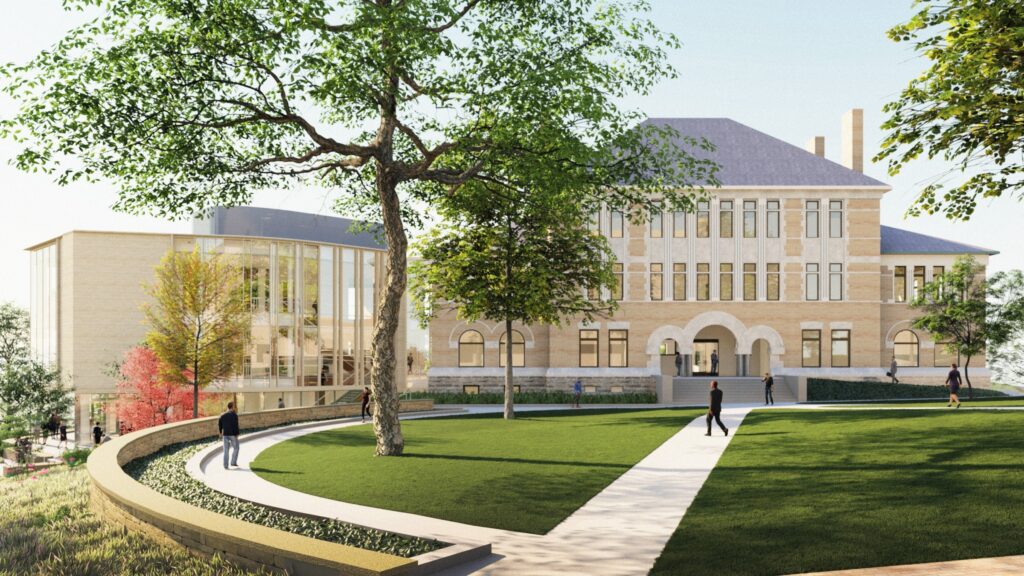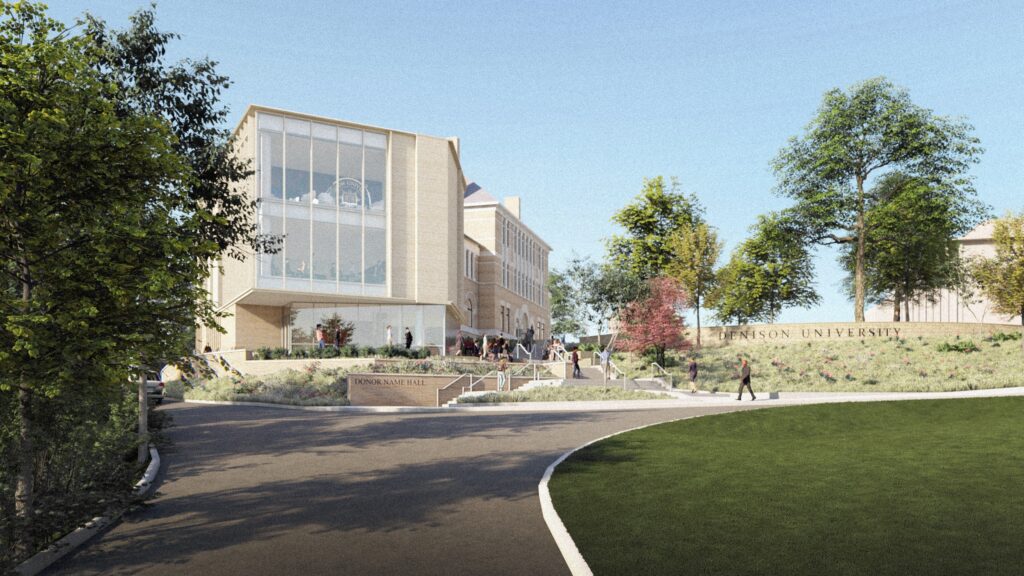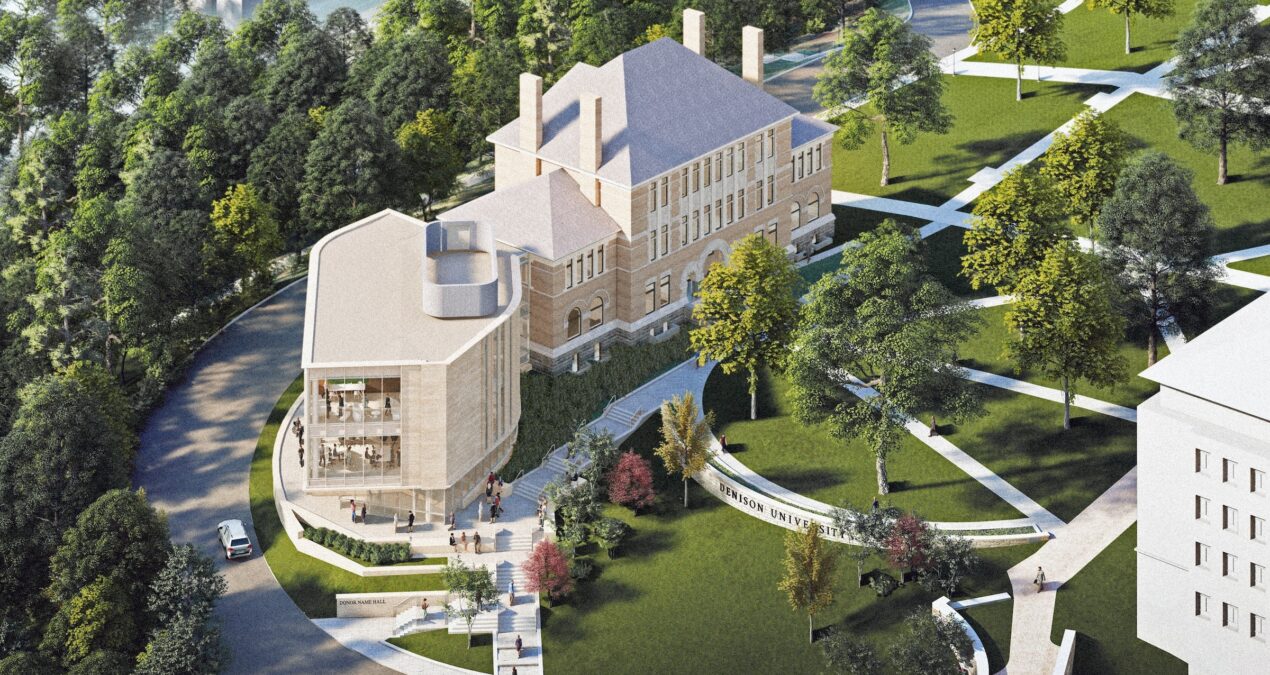Adam Weinberg, Denison University President–
The Denisonian editorial team asked me to write a regular column on important initiatives happening at the college. This seemed like fun. My plan is to write a few times a semester on initiatives designed to enhance the educational experience for our students.
I am writing my first piece on the expansion of Doane Hall into a Center for Data Reasoning & Visualization. This winter, we will break ground on a complete renovation of Doane Hall, including a new addition to the building.
Why is this project so important to the future of the college?
The future will be shaped by people who can work with large amounts of data, both quantitative and qualitative- what we might broadly call the data sciences. This will be critical across disciplines and industries and will inform everything from how we develop and drive businesses to how we play sports, understand climate change, and improve public health.
Our ability to use large data sets effectively can create a better future, but it needs to be shaped by liberal arts graduates who know how to ask the right questions, tell stories that others can understand and engage with, and ensure that our work has an ethical core. The liberal arts gives the data sciences its soul.
Denison has long leaned into this space. We were among the first liberal arts colleges to develop a computer science program in 1975. We also have long and proud traditions in math and computer science. In 2016, our math and computer science faculty teamed up with faculty from across the college, and Denison became among the first liberal arts colleges in the country to have a data analytics program.
Our data analytics program is unique because it is interdisciplinary. It gives students the technical core of all data analytics programs and also helps them apply it to another liberal arts domain. In doing so, our program uses data to deepen what the liberal arts does so well, helping students become critical thinkers and creative problem solvers who can effectively communicate with others and who have the intellectual humility needed to both navigate and contribute to the world around them.
As data analytics grew, so did our computer science department. Both departments need new space, so we started to imagine Doane Hall as a new home. As this work unfolded, an exciting conversation started to emerge across the faculty about data reasoning and visualization. A wide range of academic departments have collaborated with data analytics, including economics, earth & environmental sciences, physics, psychology, philosophy, and biology. New academic programs have also continued to emerge. Recent examples include programs in applied math, digital humanities and data for political research.
The Center for Data Reasoning & Visualization will be the hub for all of this exciting work and work we have yet to imagine. It will serve as a nexus for current and expanding data-centered academic programs, for interdisciplinary connections between faculty and students interested in engaging in data-informed work, and for the development of new approaches to pedagogy to share the power of data science with students across all academic disciplines.
The center is designed to bring students and faculty together to collaborate and learn. It will also be a space where we can hold events, workshops, and skills training. The building will also house flexible collaborative spaces to encourage co-working and learning. There will be lots of open spaces for students to gather and study. Leading edge learning spaces will enable new ways to collaborate in the classroom and will inform our future classroom investments across campus.
The center will also add much needed classrooms and labs to campus. This includes three multi-purpose classrooms with state-of-the-art technology to support courses using complex data analyses for problem-solving and presentations of work; a contemporary data visualization laboratory complete with up-to-date software, integrated digital workstations, and fully integrated technology walls that foster student collaboration; a lab that is part hardware and part Linux lab; new presentation spaces equipped with cameras and microphones to provide the latest in virtual technology for presentations; and a specialized robotics and virtual reality lab.
This project demonstrates a few of the many attributes that I admire about Denison. First, our faculty are forward-looking and always focused on where the liberal arts need to go. Second, our faculty care about the career prospects of our students and want to make sure we are giving you a life-shaping liberal arts education that will launch you into successful careers and lives. And third, we want the liberal arts to be relevant and to help shape the future.
Lastly, our donors agreed with the importance of this project. The entire construction cost will be paid for by generous donations from alumni, foundations, and friends of the college.
As I met with donors, I was struck by two things. First, everybody we talked to agreed that the data sciences will shape the future of every profession and students need a good grounding in data reasoning and visualization to architect their careers. Second, there is hope that data sciences can help us address many of the complex challenges we face, from climate change to public health. For this to happen, liberal arts students need to lead the way with intentionality, ethics, and humility.
This project does what Denison does so well. It pulls from our history to support work being done by our faculty in service of our students to set the college up for long-term health, success, and impact.



